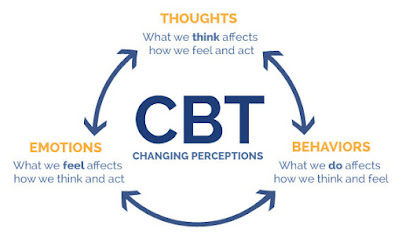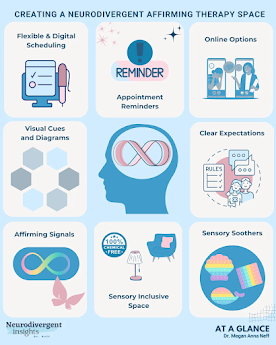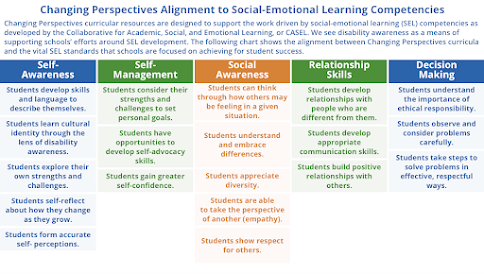Strengths of Being Neurodiverse (PLUS some info on ACT and CBT therapies)
"You don't know when to shut up, I don't want to be your friend!"
"Will you ever be quiet?!"
"You can't read, why would I want to be friends with you?!"
"You're never on time!"
"Will you ever behave normally?!"
All are phrases we have heard at some time in our lives if we have been diagnosed with a neurodiversity (ADHD, autism, dyslexia, Tourettes Syndrome, dysmorphia, dysgraphia, dyscalculia). Society wants us to fit in sometimes or has wanted us to. If you are good at masking your diagnosis, it can feel like you're suppressing your true identity.
I've had people come up to me and tell me that they don't like how their diagnosis makes them act a certain way. Look, I get it! Sometimes, I don't like how my ADHD can make me hyperactive 90% of the time. I also don't like how fixated and engrossed I can get in a topic of interest. It makes me feel like I don't have a life. I don't like how I've struggled with keeping a job... I get it! Life is hard enough and can feel challenging when you add having an invisible neurodevelopmental disability. However, YOU have the power to change your outlook on your disability and how you go forth in life.
I often think of this change like teaching yourself that it's okay to have certain limits. No one on earth is going to be the perfect human being. We ALL have flaws (even neurotypicals). What does this have to do with the topic?!? Calm your horses, Karen! I'm getting there! I'm letting you know that if you're reading this and coming from a place of identity confusion, it's okay! YOU have the power to change your mindset.
There's a therapy out there called CBT (cognitive behavioral therapy). It's a psychotherapy that helps us to understand how our thoughts, feelings, and behaviors are connected.
 Sally is 28-years old, and has learned from her therapist and psychiatrist that she has severe anxiety, severe depression, and ADHD. She didn't know many people who had ADHD growing up, but she heard that these people were the ones who struggled with focusing on one task at a time. Since learning about her diagnoses, Sally has been having a hard time coping with the fact that she's different. She has thoughts like, "well no wonder I'm so dumb, I can't focus on my work in front of me!" and "I can't do my laundry, so I might as well give up!" This isn't healthy thinking at all. What it's going to do to Sally is it's going to make it hard to feel successful at all. Her therapist can help her look at her beliefs about theses areas. Sure she might struggle with focusing, but that doesn't mean that Sally can't find ways to motivate herself or maybe find a job that can be useful to her. Sally's therapist works with her by doing CBT. About a year after doing CBT consistently, Sally's mindset is shifted. She feels more self-confident and knows that her diagnosis may limit her, but it makes her who she is.
Sally is 28-years old, and has learned from her therapist and psychiatrist that she has severe anxiety, severe depression, and ADHD. She didn't know many people who had ADHD growing up, but she heard that these people were the ones who struggled with focusing on one task at a time. Since learning about her diagnoses, Sally has been having a hard time coping with the fact that she's different. She has thoughts like, "well no wonder I'm so dumb, I can't focus on my work in front of me!" and "I can't do my laundry, so I might as well give up!" This isn't healthy thinking at all. What it's going to do to Sally is it's going to make it hard to feel successful at all. Her therapist can help her look at her beliefs about theses areas. Sure she might struggle with focusing, but that doesn't mean that Sally can't find ways to motivate herself or maybe find a job that can be useful to her. Sally's therapist works with her by doing CBT. About a year after doing CBT consistently, Sally's mindset is shifted. She feels more self-confident and knows that her diagnosis may limit her, but it makes her who she is.
Fortunately, we can be like Sally too! Like I've always said, acceptance is a process. Acceptance and Awareness in autism article from Neurodivergent Insights has some ways you can go about with acceptance in different settings. I really like this at the end "Autism awareness and acceptance are not just buzzwords or trendy slogans. It’s not a checkbox we complete once a year. It involves ongoing efforts to address internalized and structural ableism and build a more inclusive society. Embracing autism acceptance also means more than just acknowledging the existence of autism. It is a mindset and a way of living that values and affirms the dignity, autonomy, and contributions of Autistic individuals.
Autism acceptance in action means actively promoting understanding, accommodation, and inclusion for Autistic people in all areas of life. From family homes to classrooms to workplaces to public spaces, we can all take practical steps to put autism acceptance into action and create a more affirming world for all neurotypes. By putting autism acceptance into action, we can create a world that truly celebrates and values neurodiversity."
Powerful, right?!
Another therapy we can look at is ACT (Acceptance and Commitment Therapy). This is a form of psychotherapy that encourages people to accept their thoughts and feelings instead of fighting for or feeling guilty about them.
Let's look at Albert! Albert is 23-years old who lives in Colorado. He just got his degree in Marketing and got a job with a big marketing company. Albert got diagnosed with ADHD at 12-years old after his mom discovered he struggled with focusing in classes. He is medicated and was able to graduate from college with a masters in marketing, high-honors for both his undergraduate degree and his graduate degree, and received a 4.0 GPA. He did have accommodations all throughout his education. His teachers, advisors, and professors were all accepting of his dedication. However, Albert started at the MarkItUP! Marketing Company about two-months ago, and has been struggling to keep up with deadlines. He has difficulties with paying attention during meetings, organizing tasks, and managing his time wisely. With this new transition, he's been showing symptoms of depression with persistently feeling sad, low self-worth, and lack of motivation. His coworkers have been noticing this behavior from him and have been getting concerned.
Impact on Daily Life:
-
Work Performance: Albert struggles to meet deadlines and often forgets meetings, leading to stress and self-criticism.
-
Emotional Well-being: He frequently engages in negative self-talk, believing he's not competent enough for his role.
-
Social Interactions: Feelings of inadequacy make him withdraw from colleagues, limiting his support network.
🌟 How ACT Can Support Albert
1. Acceptance: Instead of battling his ADHD symptoms and depressive thoughts, Albert learns to acknowledge them without judgment. Recognizing that these experiences are part of his current reality allows him to reduce internal conflict.
2. Cognitive Defussion: Albert practices techniques to distance himself from unhelpful thoughts. For instance, when he thinks, "I'm a failure," he reframes it as, "I'm having the thought that I'm a failure," which diminishes the thought's power over him.
3. Being Present: Through mindfulness exercises, Albert enhances his ability to focus on the present moment, improving his attention span and reducing anxiety about past mistakes or future uncertainties.
4. Self-as-Context: Albert learns to see himself as more than his thoughts and feelings. This perspective helps him understand that while he experiences challenges, they don't define his entire identity.
5. Values Clarification: Albert identifies what truly matters to him, such as creativity, collaboration, and personal growth. These values become guiding principles for his actions.
6. Committed Action: Aligning with his values, Albert sets achievable goals, like organizing his tasks using digital tools or seeking feedback from peers, fostering a sense of accomplishment and progress.
📈 Potential Outcomes
By integrating ACT into his life:
-
Enhanced Self-Compassion: Albert becomes kinder to himself, reducing the impact of negative self-talk.
-
Improved Work Performance: With better focus and organization, he meets deadlines more consistently.verywellhealth.com+1verywellhealth.com+1
-
Strengthened Relationships: Feeling more confident, Albert engages more with colleagues, building a supportive network.
ACT provides Albert with tools to navigate his ADHD and depression, emphasizing acceptance, mindfulness, and alignment with personal values. This approach fosters resilience, enabling him to lead a fulfilling professional and personal life.
If you're interested in exploring ACT further or finding a therapist who specializes in this approach, feel free to find a therapist near you.
We all have strengths as neurodiverse people. It's all about looking for them. We need to be in a place where we can recognize our strengths and use them for the good!








Comments
Post a Comment